World
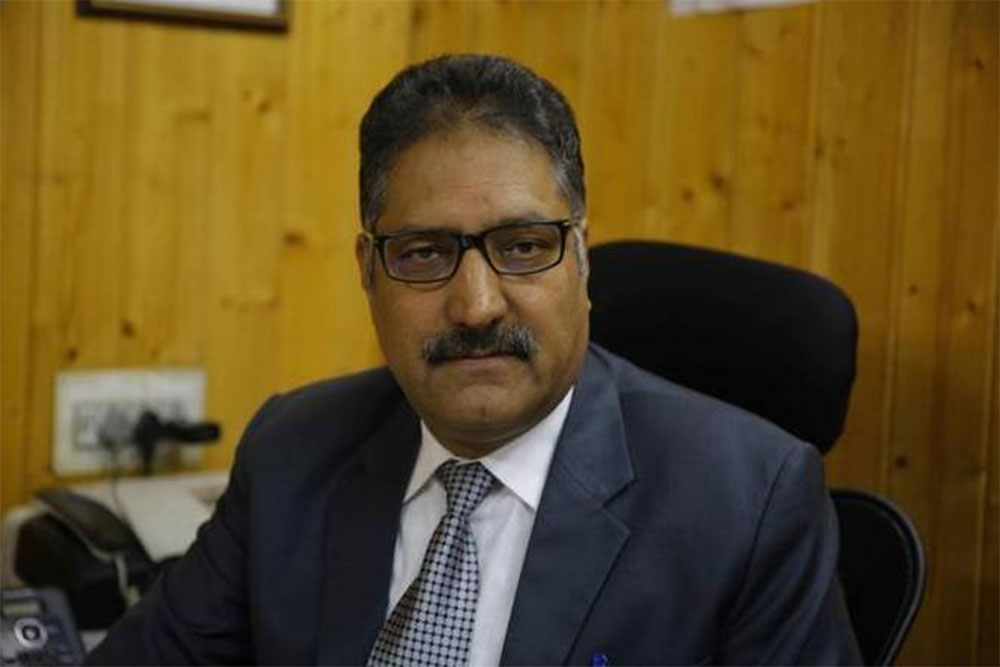
Kashmiri journalist Shujaat Bukhari shot dead by terrorists
Shujaat Bukhari, the editor of prominent Kashmiri English daily Rising Kashmir, was shot dead in Srinagar, the summer capital of Jammu and Kashmir, sending shock waves throughout the region.
His vehicle was surrounded by a group of suspected militants who opened fire on him and his security personnel. Two security personnel later died as a result of their injuries at a hospital.
Bukhari's colleague said that he had just stepped outside his office after finishing his daily work and was heading to break his fast when the attack took place
Bukhari was one of the few moderate and bold voices in Kashmir who stood for dialogue between India and Pakistan to resolve the Kashmir dispute.
Bukhari had worked for several top national and international publications and written hard-hitting articles, never shying away from taking an unpopular stand. He was special correspondent with The Hindu newspaper from 1997 to 2012 and continued to write for Frontline magazine.
The Press Club of India has expressed its shock and dismay over the incident in the Kashmir valley.
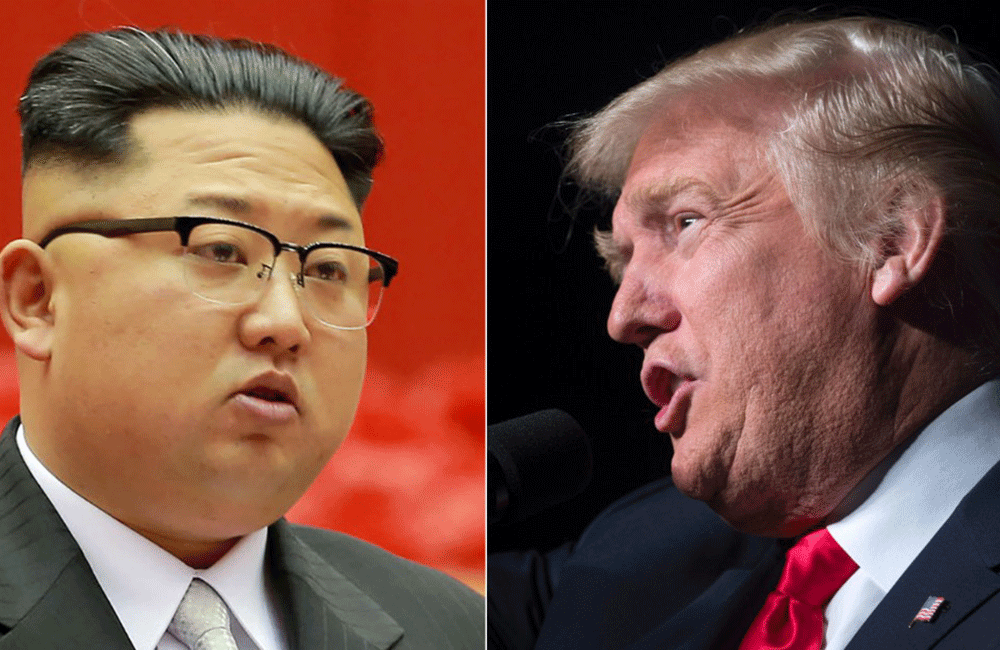
Trump-Kim meeting: Preparations going well, says US
The US has said preparations for next week's meeting between President Donald Trump and North Korean leader Kim Jong-un in Singapore are going well.
The White House said the two men would first meet at 09:00 local time and that Mr Trump was receiving daily briefings. But it said sanctions would not be lifted against North Korea unless it gave up its nuclear weapons.
With one week to go to the summit, hosted by Singapore, remarkably few details have been publicly confirmed. It remains unclear exactly where in the city state the two will meet.
Discussions on the denuclearisation of the Korean peninsula are expected to be high on the agenda, although some analysts have speculated that a formal end to the Korean War is also on the table.
There was initially much uncertainty over whether the summit would go ahead at all, and it was briefly called off last month by Mr Trump after a dispute with the North Koreans.
Source : BBC
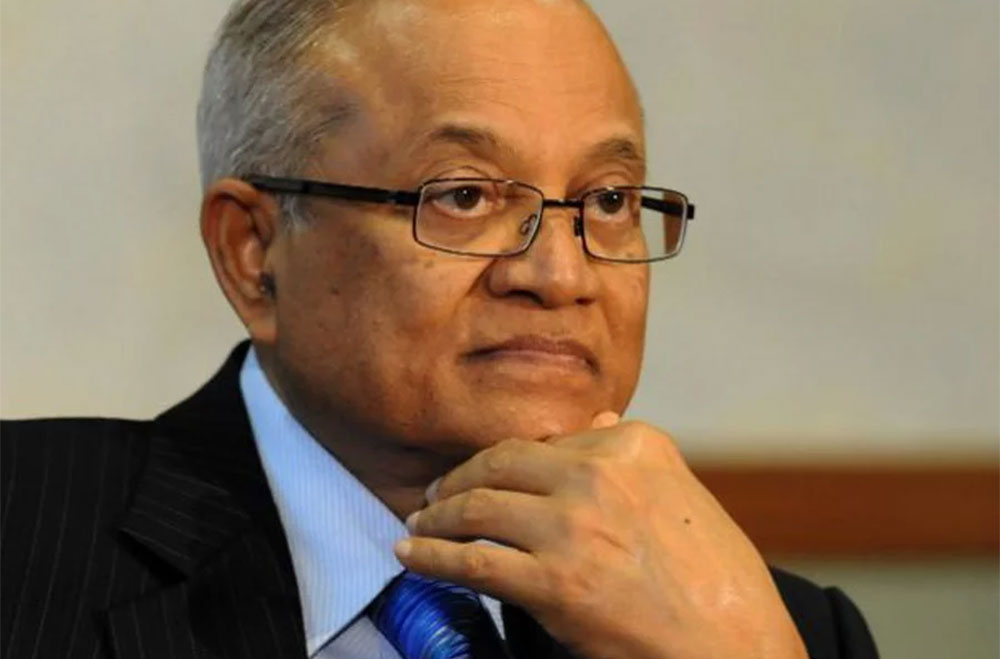
Former president Maldives sentenced for obstruction of justice
A court in the Maldives on Wednesday convicted former president Maumoon Abdul Gayoom and the sitting chief justice for obstruction of justice and sentenced them to 19 months in prison.
The trials are widely seen as part of a plan by President Abdulla Yameen to tighten his grip on power ahead of elections in September at which he seeks a secondfive-year term against the opposition yet to decide on a single candidate. The government denies this.
The country of 400,000 people is popular with tourists but has seen political unrest since its first democratically elected leader, Mohamed Nasheed, was forced to quit amid a police mutiny in 2012.
Nasheed was convicted of terrorism charges in 2015 and sentenced to 13 years after a trial criticized as unfair.
Gayoom, who is the country’s longest-serving leader, Chief Justice Abdulla Saeed and Supreme Court Justice Ali Hameed were found guilty on Wednesday after they were charged for refusing to hand over their mobile phones for a police investigation.
They received sentences of 19 months and six days.
Source : Reuters
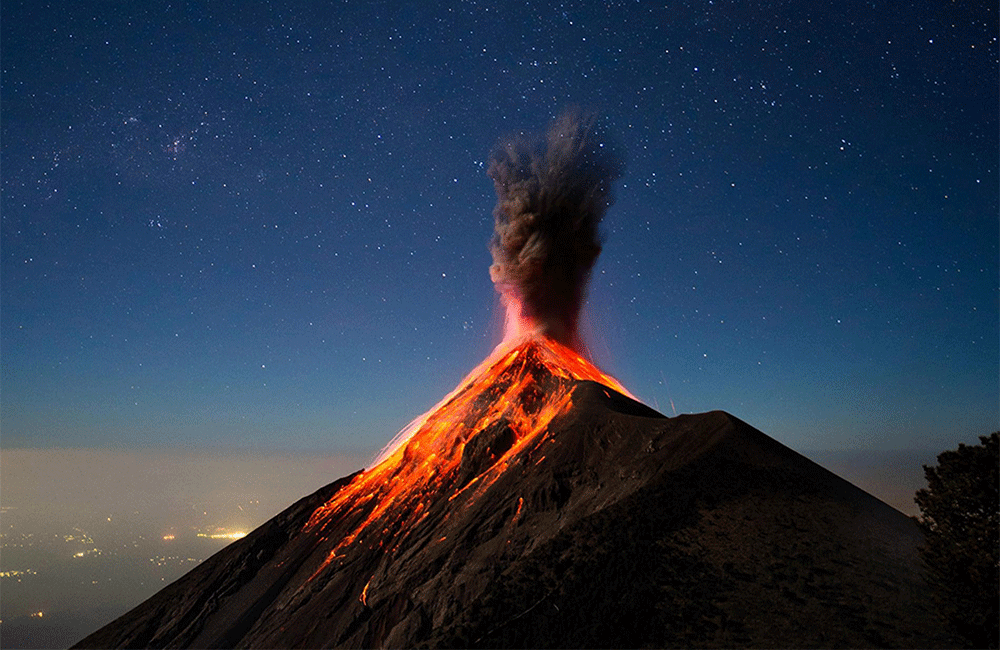
Dozens die in Guatemala volcano eruption
Twenty-five people have been killed and hundreds injured after Guatemala's Fuego volcano erupted, officials say.The volcano, about 40km (25 miles) south-west of the capital Guatemala City, has been spewing rocks, black smoke and ash into the sky.
The National Disaster Management Agency (Conred) said a river of lava hit the village of El Rodeo, destroying houses and burning people inside. In Guatemala City, La Aurora airport has been closed due to ash.
President Jimmy Morales said a national emergency response had been launched."We think that there could be a state of devastation in at least three areas," President Morales said.
This eruption is the biggest since 1974, according to local experts.
Source : BBC
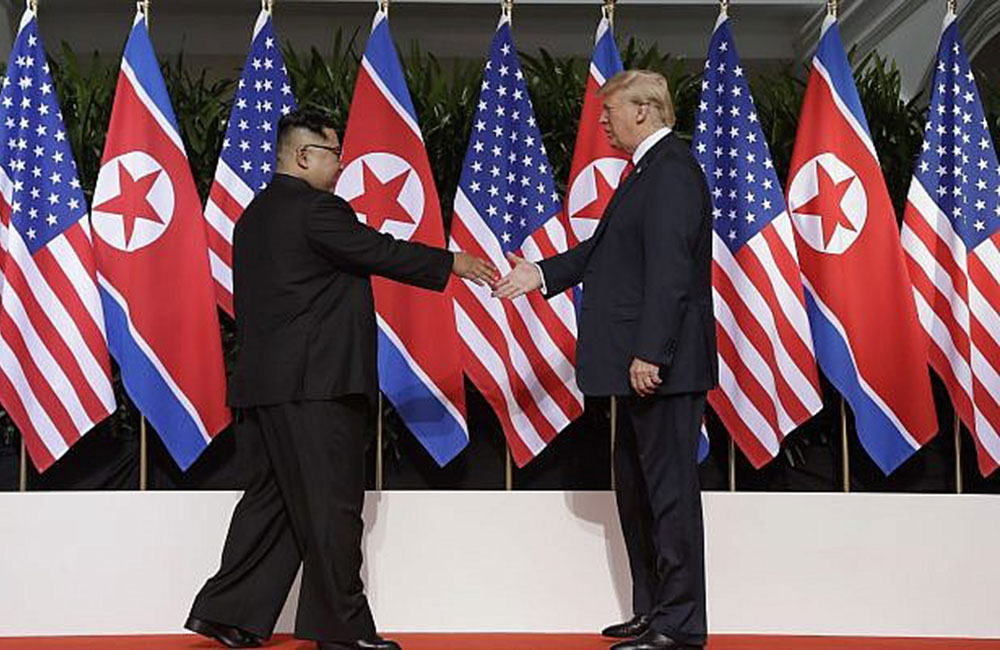
Trump, Kim meet for historic handshake and summit
Donald Trump and Kim Jong Un made history on Tuesday, becoming the first sitting US and North Korean leaders to meet and shake hands ahead of their attempt to negotiate to end a decades-old nuclear stand-off.
On a small stage bedecked with the US and North Korean flags, the two leaders strode toward each other and shook hands, with Trump grasping Kim on the shoulder, before walking off for their meeting.
As they sat down for their one-on-one meeting, the US leader predicted a “terrific relationship” with Kim.
“We will have a terrific relationship, I have no doubt,” Trump said amid smiles and backslapping that belied the decades of tension and blood spilled between the two Cold War foes. 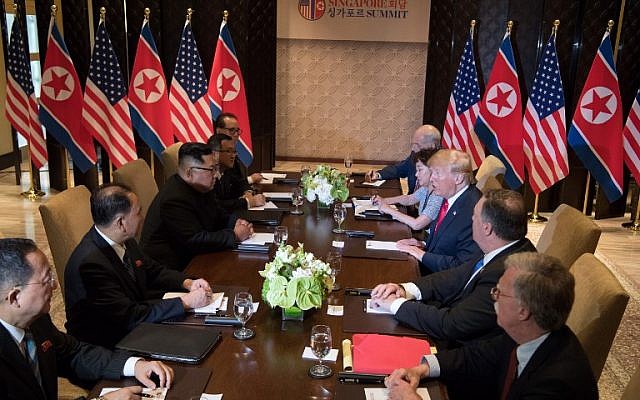
US President Donald Trump (R) gestures as he meets with North Korea’s leader Kim Jong Un (L) at the start of their historic US-North Korea summit, at the Capella Hotel on Sentosa island in Singapore on June 12, 2018. ( AFP PHOTO / SAUL LOEB)
North Korea and the United States have overcome the obstacles of a difficult history to hold their summit in Singapore, the North’s leader Kim Jong Un said as the unprecedented meeting opened Tuesday.
“The way to come to here was not easy,” Kim said, sitting at a table with Trump. “The old prejudices and practices worked as obstacles on our way forward but we overcame all of them and we are here today.”
The one-on-one meeting concluded after around 48 minutes Tuesday. The two men met with only their interpreters, before going into a second meeting where they are joined by key aides.
Trump said the meeting with Kim was “very, very good” and that the two have an “excellent relationship.”
Trump was flanked in the larger meeting by chief of staff John Kelly, Secretary of State Mike Pompeo and national security adviser John Bolton. They sat across the table from Kim and his team.
Trump said Tuesday at the beginning of expanded discussions with aides from both countries that “We will solve a big problem” and “a big dilemma.”
He talked about the pair achieving “tremendous success together” and predicted that “it will be successful. It will be done.”
It was hard to hear the president and Kim over the constant clicking of camera shutters, and it remained unclear precisely what he was referring to.
US President Donald Trump (3rd R) and North Korea’s leader Kim Jong Un (3rd L) sit down with their respective delegations for the US-North Korea summit, at the Capella Hotel on Sentosa island in Singapore on June 12, 2018. Donald Trump and Kim Jong Un became the first sitting US and North Korean leaders to meet, shake hands and negotiate to end a decades-old nuclear stand-off. (AFP PHOTO / SAUL LOEB)
The extraordinary summit — unthinkable only months ago — comes after the two nuclear-armed foes appeared on the verge of conflict late last year as they slung personal insults and Kim conducted nuclear and missile tests.
In a series of tweets early Tuesday, Trump indicated that summit preparations were “going well and quickly”.
“We will all know soon whether or not a real deal, unlike those of the past, can happen,” he tweeted — before hitting out in a subsequent post at “haters & losers” who see the summit itself as a risky up-front concession to Kim.
Pointing at the recent release of three American hostages and Pyongyang’s pledge to refrain from further nuclear or missile tests, Trump charged that “these pundits, who have called me wrong from the beginning, have nothing else they can say!”
“We will be fine!” he tweeted.
Under heavy security, the leaders left their two hotels for the palms and whitewashed walls of Singapore’s ultra-exclusive Capella Hotel, where the summit takes place.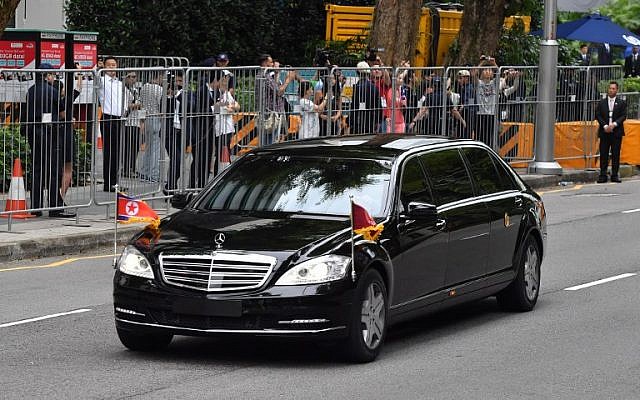
A motorcade transporting North Korea’s leader Kim Jong Un sets off to Sentosa, the resort island where Kim is scheduled to meet with US President Donald Trump for a US-North Korea summit, from his hotel in Singapore on June 12, 2018.( AFP PHOTO / ADEK BERRY)
The face-to-face with Kim is a far cry from last year when Trump called on the international community to exert “maximum pressure” to buckle the reclusive regime and threatened to unleash “fire and fury like the world has never seen” if Pyongyang continued to threaten the US.
For his part, Kim called Trump a “mentally deranged US dotard” and said he would “tame” him, “with fire”.
That will seem a distant memory when the two men will walk towards each other and then sit down for an initial half-day of meetings with ramifications for the entire world.
It is a historic meeting for both men — perhaps comparable to president Richard Nixon’s 1972 visit to China, or Ronald Reagan’s summit 1986 with Mikhail Gorbachev in Reykjavik.
It is potentially legacy-defining — as long as they can disprove critics’ fears that the meeting will be more about drama than detail.
The North has promised to give up its weapons in the past, while a long history of previous agreements have ultimately foundered.
“If there is no statement of intentions to move toward a peace treaty, if there’s no statement from the North Korean side on denuclearisation, we’re going to find ourselves very quickly in a very hollow summit,” said Ryan Hass of the Brookings Institution.
If that happened, he added, “quickly we’ll move into a space of mutual recrimination and finger-pointing about whose fault it was”.
(AFP)
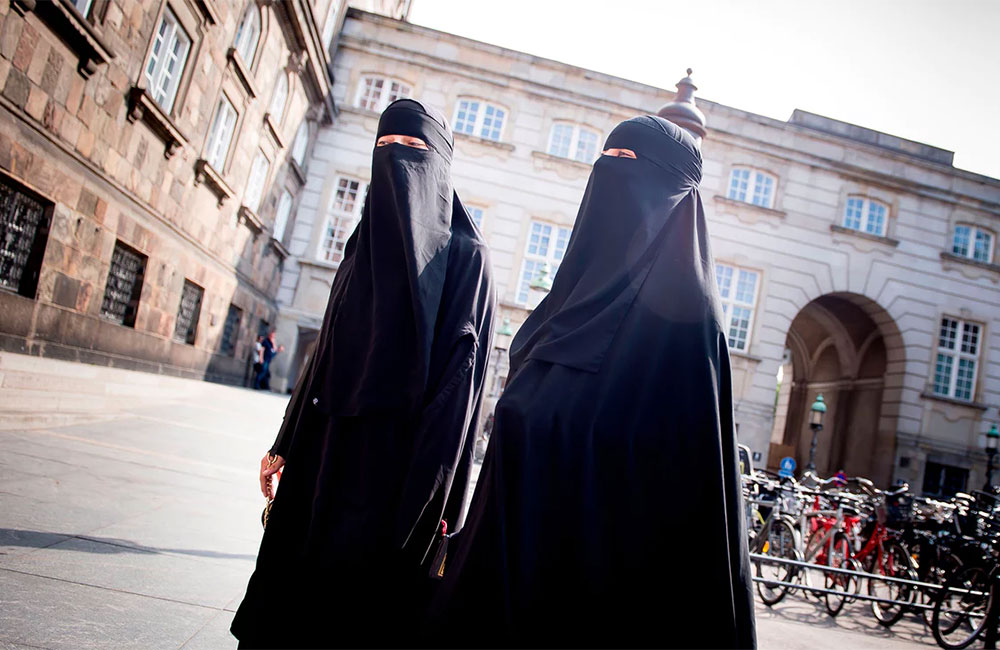
Denmark passes law banning burqa and niqab
Denmark has joined several other European countries in banning garments that cover the face, including Islamic veils such as the niqab and burqa, in a move condemned by human rights campaigners as “neither necessary nor proportionate”.
In a 75-30 vote with 74 absentees on Thursday, Danish lawmakers approved the law presented by the centre-right governing coalition. The government said it is not aimed at any religions and does not ban headscarves, turbans or the traditional Jewish skull cap.
But the law is popularly known as the “burqa ban” and is mostly seen as being directed at the dress worn by some Muslim women. Few Muslim women in Denmark wear full-face veils.
The justice minister, Søren Pape Poulsen, said it would be up to police officers to use their common sense when they see people violating the law, which comes into force on 1 August.
The legislation allows people to cover their face when there is a “recognisable purpose” such as cold weather or complying with other legal requirements, for example using motorcycle helmets under Danish traffic rules.
Those violating the law risk a fine of 1,000 kroner (£118). Repeat offenders could be fined up to 10,000 kroner.
Austria, France and Belgium have similar laws.
Gauri van Gulik, Amnesty International’s Europe director, said of the Danish decision: “All women should be free to dress as they please and to wear clothing that expresses their identity or beliefs. This ban will have a particularly negative impact on Muslim women who choose to wear the niqab or burqa.
“While some specific restrictions on the wearing of full-face veils for the purposes of public safety may be legitimate, this blanket ban is neither necessary nor proportionate and violates the rights to freedom of expression and religion.
“If the intention of this law was to protect women’s rights, it fails abjectly. Instead, the law criminalises women for their choice of clothing and in so doing flies in the face of those freedoms Denmark purports to uphold.”
Source : The Guardian
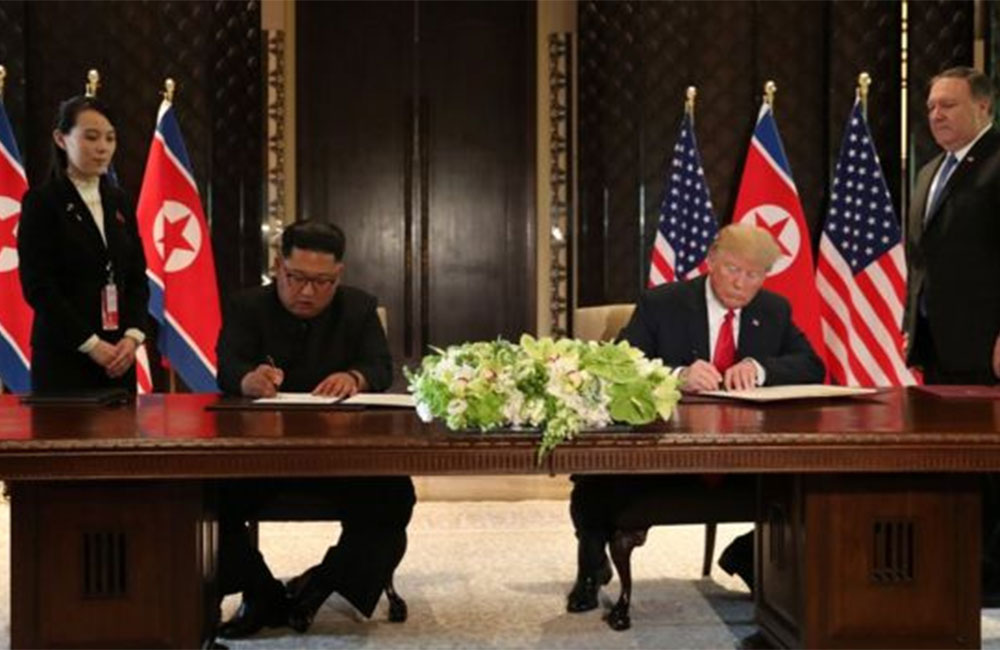
US and North Korean leaders hold historic talks
Donald Trump and Kim Jong-un have become the first sitting US president and North Korean leader to meet, an unprecedented development after a year of exchanging threats.
The pair shook hands at a luxury hotel on Singapore's Sentosa island before proceeding to talks.
After the summit the leaders signed a "comprehensive" document, promising a new relationship between the nations.
They had been discussing defusing tensions and nuclear disarmament.
The document commits North Korea to work towards "the complete denuclearisation of the Korean peninsula" and promises "new relations" between Washington and Pyongyang.
There was also a commitment to build "a stable and lasting peace" on the Korean peninsula.
Source : BBC
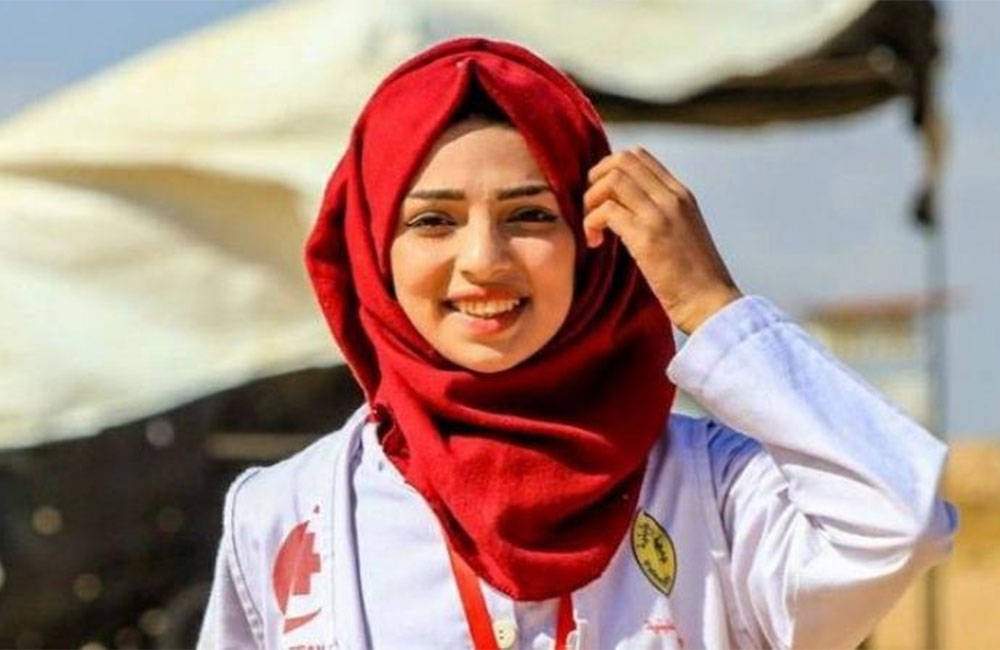
Israeli army kills Palestinian female medic
A Palestinian woman was killed from IDF fire near the Gaza Strip border as the weekly March of Return protest resumed Friday afternoon, just two days after the conclusion of the most recent conflagration between Israel and the Palestinian Gaza terror groups.
Razan Ashraf Najjar, 21, a volunteer paramedic, was shot as she ran toward the fortified border fence, east of the south Gaza city of Khan Yunis, in a bid to reach a casualty, a witness said.
Wearing a white uniform, "she raised her hands high in a clear way, but Israeli soldiers fired and she was hit in the chest," the witness, who requested anonymity, told Reuters.
The Palestinians also reported over 100 were wounded in the clashes, 40 of them from live fire.
According to the IDF, thousands of rioters were protesting on the Gaza border, hurling stones, burning tires and trying to sabotage security infrastructure. Israeli forces responded with crowd dispersal measures.
UN and human rights officials, however, have accused Israel of using disproportionate force.
At Saturday's funeral procession, Razan al-Najar's body was carried through the streets of Gaza wrapped in a Palestinian flag. Her father carried her blood-stained medical jacket, while other mourners demanded revenge.
The Palestinian Medical Relief Society said Ms Najar had been trying to reach an injured protester when she was shot near the city of Khan Younis.
"Shooting at medical personnel is a war crime under the Geneva conventions," it said in a statement.
UN envoy for the Middle East Nickolay Mladenov tweeted that Israel needed to calibrate its use of force and Hamas needed to prevent incidents at the border.
The UN's Office for the Co-ordination of Humanitarian Affairs (OCHA) also said it was "deeply concerned" and called for the protection of medical workers.
Source : Foreign Agencies
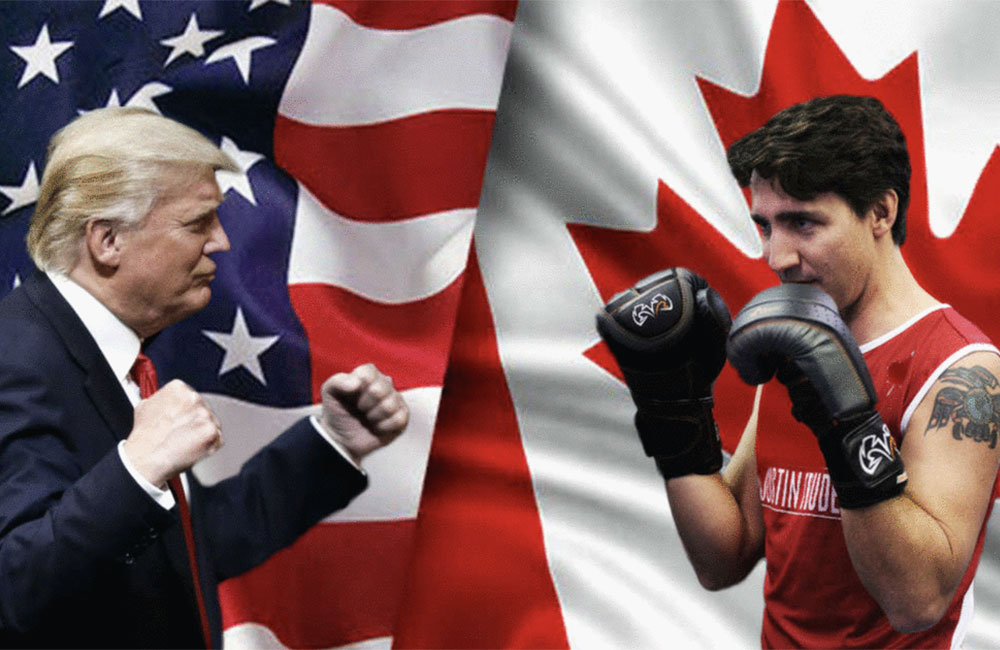
G7 summit ends in disarray as Trump abandons joint statement
US President Donald Trump has retracted his endorsement of the joint communique issued at the end of the G7 summit, accusing Canada of "dishonesty".
He said that other countries were imposing "massive tariffs" on the US.
The joint communique, advocating a "rules-based trading system", was reached despite tension over US tariffs on steel and aluminium imports.
Canadian Prime Minister Justin Trudeau vowed afterwards to press ahead with retaliatory tariffs on 1 July. Speaking at a news conference, he described as "insulting" Trump's decision to invoke national security concerns to justify steel and aluminium tariffs.
"It would be with regret but it would be with absolute clarity and firmness that we move forward with retaliatory measures on 1 July," Trudeau said. "Canadians are polite and reasonable but we will also not be pushed around."
His words contained nothing he had not said before, both in public and in private conversations with Trump, his office said later.
The EU said it would stick to the joint communique despite Trump's decision.Trump had earlier signed the joint statement agreed by all the G7 nations despite the trade row.
Source : BBC
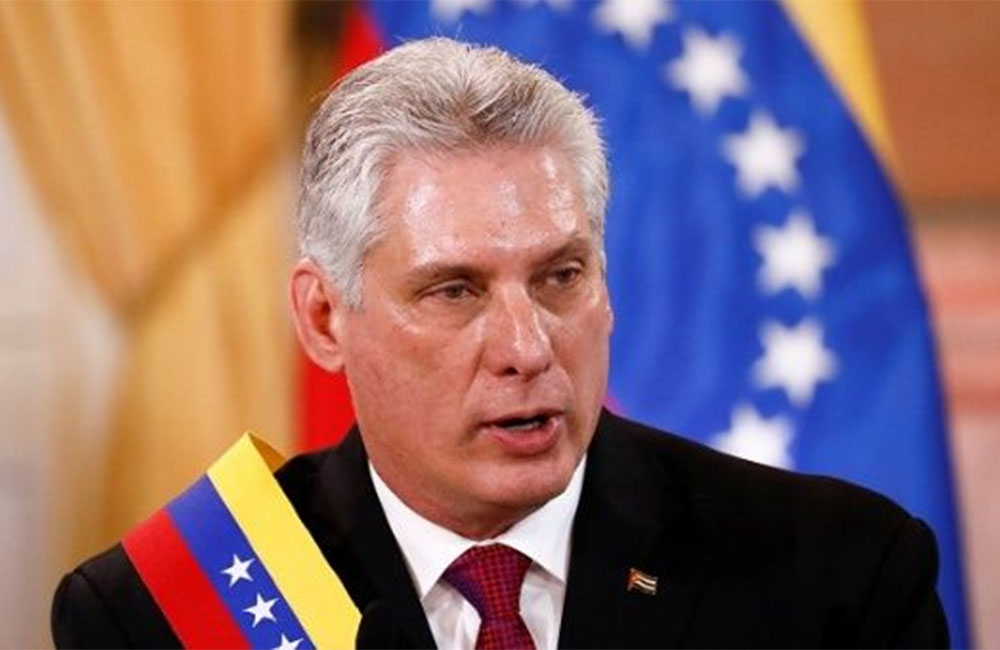
Cuba to begin constitutional reforms
Presidential term limits and the legalisation of same-sex marriage are amongst reforms being proposed by Cuba's national assembly. The intention is to constitutionally formalise the island's economic and social opening-up while maintaining the "irrevocable nature of socialism".
Former President Raúl Castro will lead the potential reforms, President Miguel Diaz-Canel has announced. Díaz-Canel took over from Castro as the country's leader in April. The Castro brothers, first Fidel and them Raul. ruled the country between 1959 and 2018.
Díaz-Canel is an avowed socialist. In his inaugural address, he declared that there was "no room in Cuba for those who strive for the restoration of capitalism". The last constitutional reform in 2002 decreed that the socialist character of the political system in Cuba was "irrevocable".
Most ordinary Cubans are keen to see what the parliament will decide on the island's economic and social future.
Small business owners are said to be hoping for Cuba's movement towards a more mixed economy, while LGBT rights activists are hopeful there will be an acceptance of changes to the concept of marriage as strictly between a man and a woman.
There is no timetable for the constitutional reforms to take place and any reforms are likely to be gradual, our correspondent cautions.
Source : BBC

Anthony Bourdain, celebrity chef, dead in apparent suicide at 61
Famed American chef and author Anthony Bourdain is dead after taking his own life. He was 61.
CNN confirmed Bourdain’s death Friday morning.
“It is with extraordinary sadness we can confirm the death of our friend and colleague, Anthony Bourdain,” the network said in a statement.
“His love of great adventure, new friends, fine food and drink and the remarkable stories of the world made him a unique storyteller.”
“His talents never ceased to amaze us and we will miss him very much. Our thoughts and prayers are with his daughter and family at this incredibly difficult time.”
CNN said Bourdain was in France working on a story for his award-winning series Parts Unknown when he was found “unresponsive” in a hotel room Friday morning by his close friend and French chef Eric Ripert.
Bourdain’s death comes the same week that another American figure had taken their own life. Kate Spade was found dead in her New York apartment on Tuesday, June 5. She was 55.
Bourdain was a host on the Food Network and the Travel Channel before joining CNN in 2013.
CNN’s Brian Stelter described the storyteller as a “beloved member of the CNN family.”
“He loved travelling the globe, talking with people about life and love and death,” Stelter said. “His show was technically about cooking, about culture but really it was about the human condition. It was about exploring what makes us all tick.”
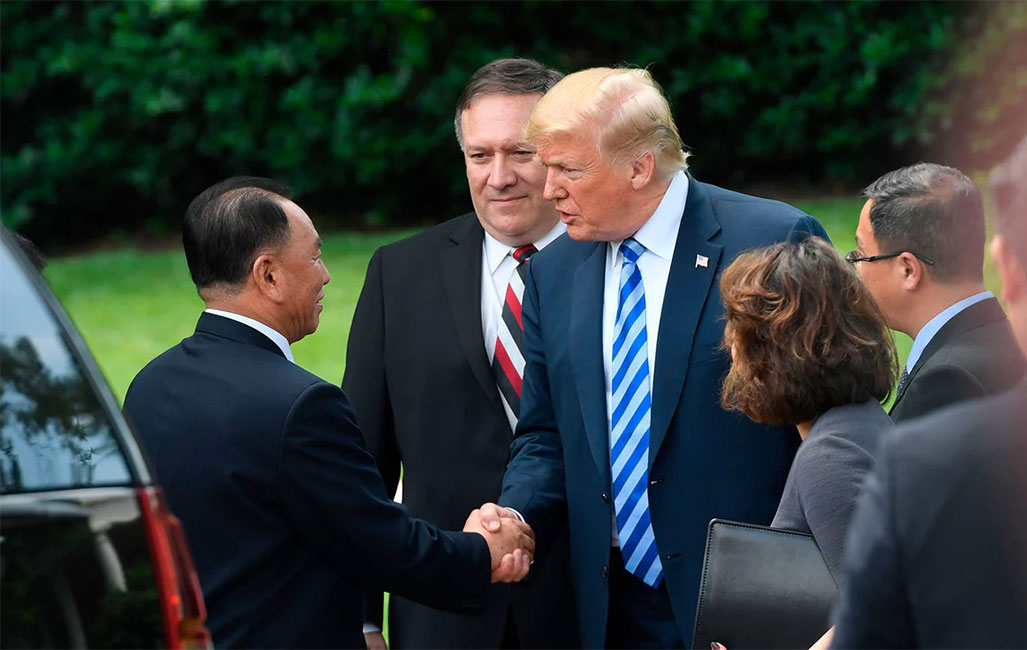
Donald Trump says North Korea summit on 12 June is back on
Donald Trump has announced that a 12 June summit with Kim Jong-un will go ahead as planned in Singapore, saying it would mark the beginning of a negotiating process with North Korea that could involve several such meetings.
Trump was speaking to reporters after meeting Kim’s top aide, Kim Yong-Chol, in the Oval Office. It had been billed as a brief courtesy visit but it continued for more than an hour and 20 minutes. In a lavish show of hospitality, Trump escorted his visitor, a former spy chief and general who is under US sanctions, outside the White House for more informal talks and to pose for photographs with the North Korean delegation.
Trump also appeared to accept the North Korean position that its denuclearisation would be a drawn-out process – not the all-in-one surrender of the regime’s nuclear arsenal that Trump officials had previously demanded.
“The big deal will be on June 12,” Trump said. “It’s a process, we're not going to sign something on June 12 and we never were. We are going to start a process. And I told them today: take your time. We can go fast, we can go slowly. I think they’d like to see something happen and if we can work something out that will be good.”
But in a dramatic downgrading of expectations from the summit, Trump said Singapore meeting would be a “getting-to-know-you meeting, plus”.
Such a meeting, the first ever between a sitting US president and a North Korean leader, has been a longstanding objective of the Pyongyang regime. To achieve it, it has suspended nuclear and long-range missile tests, but has given no undertakings on the scale or speed of its nuclear disarmament.
Source : The Guardian
Page 33 of 51
